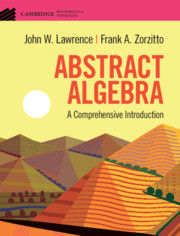BETTER Solutions Dummit Foote Abstract Algebra Chapter 7.rar
- quiproscopocla
- May 16, 2022
- 1 min read

by B Félix
2017
Since f(x) is irreducible in Z[x] it is also irreducible in Q[x] then, by corollary 7[Dummit and Foote, section 13.1] the extension K/Q is of degree 4. Now, let .
tranlewatra/solutions-dummit-foote-abstract-algebra-chapter-7rar. By tranlewatra. Solutions Dummit Foote Abstract Algebra Chapter 7.rar. Container.
by B Félix
2017
Theorem 1.1. From [Liu, N. A. and M. R. Vaughan, Jr. (2010). “On the Structure of Rational Multiple Polynomials,” Foundations of Computational Mathematics,10 (3), 265–276.] Let f(x) be a non-zero polynomial with integer coefficients, let K be a subring of the real number numbers, and let a, b, c be integers such that
$$
f(x)=x^3 + ax^2 + bx + c
$$
Let L be a subring of the real numbers that contains K, and let d be an integer such that d=ak+lb+lc
Then, f(x) is an integer multiple of the squarefree polynomial
$$
g(x)=x^3 - (ak + lb + lc)x^2 + (ak^2 + 2alb + (bc - ad^2) - l^2b^2 - l^2c^2 + l^2a^2d^2 + 2l^2acd)x - l^2c^2 - l^2a^2d^2
$$
Theorem 1.2. From [Liu, N. A. and M. R. Vaughan, Jr. (2010). “On the Structure of Rational Multiple Polynomials,” Foundations of Computational Mathematics,10 (3), 265–276.] Let f(x) be a non-zero polynomial with integer coefficients, let K be a subring of the real number numbers, and let a, b, c be integers such that
$$
f(x)=x^3 + ax^2 + bx + c
$$
Let L be be359ba680
Related links:



Comments